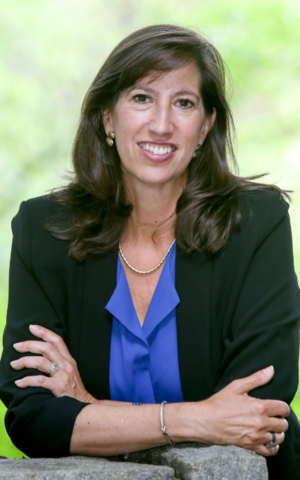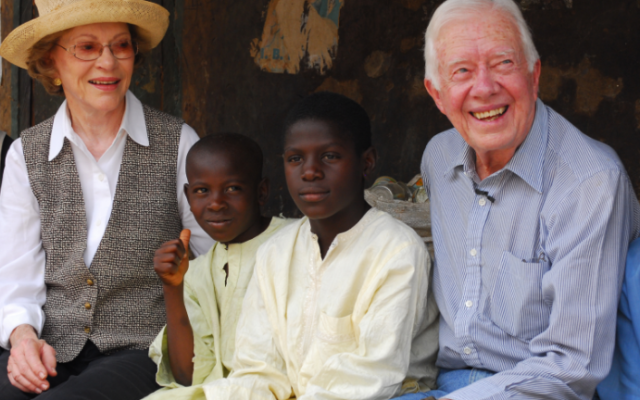Paige Alexander Empowers Women at The Carter Center
At the international nonprofit, Atlanta native unveils new initiative for world’s women.
Well into her first year as the CEO of The Carter Center, Paige Alexander has begun to put her stamp on the future direction of the former president’s international programs.
Those include conflict resolution, health and human rights. More than 2,000 people in 80 countries work for the center.
Alexander, who grew up in a politically influential family, just announced a new initiative to help empower women in Atlanta and a dozen other cities around the world.
The start of the campaign, entitled “Informed Women Transform Lives” is timed to coincide with March as Women’s History Month.
The campaign is designed, she says, to give women, regardless of their place in society, access to practical information that men may already have.

“Everyone deserves to have the information to make their life better. And that’s something I grew up with in Atlanta. I think that was part of the civil rights movement here that there has to be equality. President Carter believed in this and our programs have believed in this. And this is just part of a continuation of equality across the board.”
For Alexander, the return last summer to a city where she graduated from the Pace Academy in the 1980s was “a homecoming for me.”
She met her husband prior to the 1988 Democratic convention, when a group who had volunteered for Michael Dukakis, the party’s presidential candidate that year, stayed at the family home. Her father Miles is a prominent Atlanta attorney and her mother Elaine has been a lifelong political activist. Her brother Kent is the current president of The Temple.
Growing up, she often found political leaders such as former U.N. Ambassador Andrew Young and Atlanta Mayor Maynard Jackson sitting around the family dinner table.
For the last 35 years she’s worked on international development projects in Washington and in Amsterdam, where she’s lived for the last decade. That kind of background, she points out, has given her an appreciation for the impact that information can have.
“This program was designed around that concept, that information is power and if the women don’t have it, then half of society is not getting the information and the power that they need to be productive citizens. So we really do consider it a basic human right to have access to that information.”
President Carter, who is 95, and his wife Rosalyn have retired from active participation in the work of the center. But their presence is still felt. For almost 40 years, the former president helped create what is generally thought of as a model for what such a center could be.
In 2015, his book “A Call to Action: Women, Religion, Violence, and Power” addressed some of what he considered the urgent questions surrounding the human rights of women. Alexander said that in recent years the former president has looked at policy through what she describes as “a gender lens.”
Although there was a surge of interest in the project that surprised even longtime staffers, there was likely little enthusiasm in Israel for working with Carter. Part of the reason is the disappointment that the former president has expressed in the government of Israel in the last 25 years.

Another of his books, “Palestine: Peace Not Apartheid,” written in 2006, was a scathing denunciation of Israel’s policies in the occupied territories on the West Bank.
Carter, at the time, condemned the Jewish state as promoting a kind of apartheid there that was worse than the racist policies of South Africa.
Important Jewish leaders such as Arthur Blank and Stuart Eizenstat, who wrote a long appraisal of Carter’s record as president, stayed on the center board. But the American Jewish community is generally thought to have distanced itself from the former president.
Alexander, who grew up in a family that has had a strong record of support for Israel, said she’s talked to the former chief executive about his views.
“We had a very open conversation about Israel, about my time working in the West Bank. These were important elements I wanted to have a discussion with him about because, obviously, I come at this as an American Jew. I’ve read his book. The title might be one thing. The book is something else. And it actually holds water this far into this, much later. And it is important, I think, that we address equality across the board and we can’t have blinders on. And that’s an important element of the work that The Carter Center does. And so I’m really pleased to be a part of it.”
Going forward, there’s a new team at the helm: Alexander as the CEO and the president’s grandson Jason, a former Georgia state senator, has succeeded the former president as chairman of The Carter Center board. ì




comments